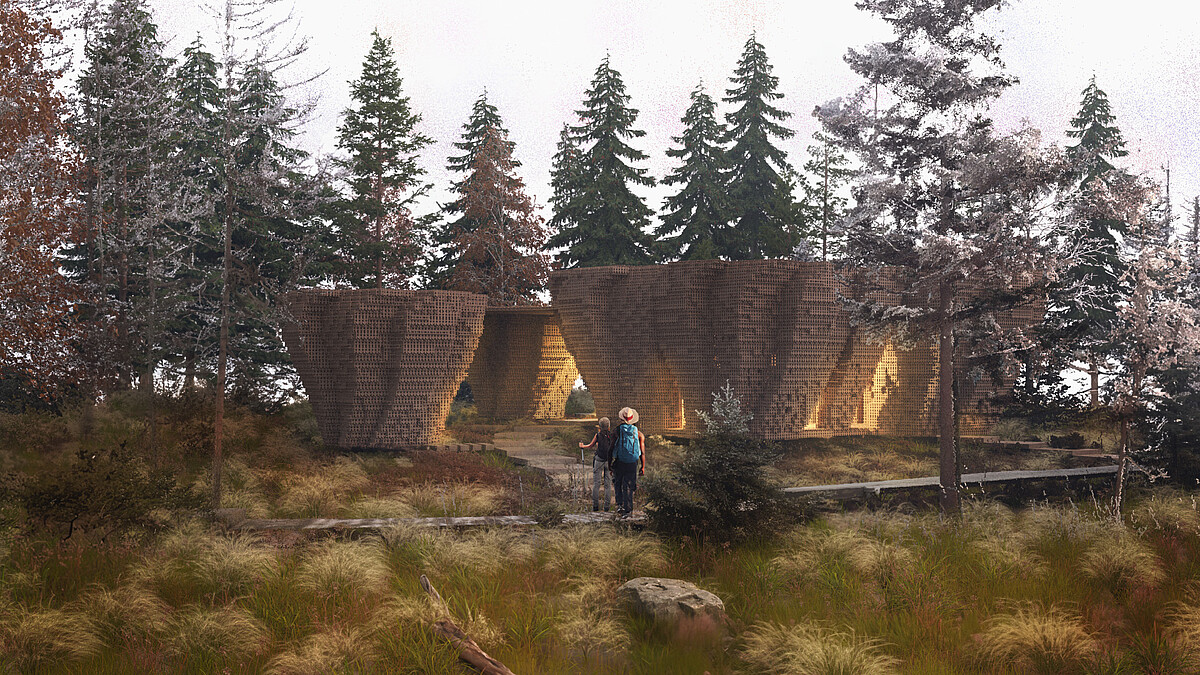Class
To build in a circular manner, there are two approaches: first, to reuse materials already in circulation, and second, to develop novel building components that can be easily dismantled and recycled to remain in circulation for as long as possible.
The dMA department has been working on reversible and discrete construction systems for several semesters, where small building blocks can be assembled into large structures, to be easily disassembled again. This approach for design and construction has been continuously refined in BSc. theses, prototypes, and projects. This semester, we will further explore the topic in the BSc. thesis. A particular focus will be on developing architectural details that facilitate transitions from the rigid construction logic of discrete systems to other components such as windows, doors, technical installations, insulation, and sealing. The brief will be located in a changing coastal area and will propose a building that transforms along with the changing environment.
The design will also address existing context, as previous BSc. theses have done. To accomplish this, a location will be surveyed using 3D laser scanning and made available for design purposes.
Formally and constructively, a system of small building blocks will be developed. A key design tool will be the VRoxel software developed at the department, which allows intuitive design using 3D scan data, motion capture recordings, and millions of tiny building blocks. In a seminar, the necessary digital methods required for developing the design will be further explored.
Info
Modules:
- BSc. Architektur:
Bachelor Thesis
Lecturers:
- Prof. Mirco Becker
- Hendrik Wiese
- Jan Philipp Drude
Schedule:
- First Class: Friday 22.03.2024
12:00 - 14:00 dMA Meeting Table - 1st Colloquium: 19.04.2024 11:00 - 14:00 small Foyer
- 2nd Colloquium: 17.05.2024 11:00 - 14:00 small Foyer
Further Infos on stud.ip




